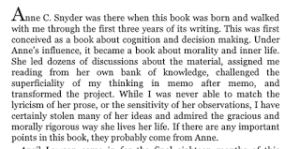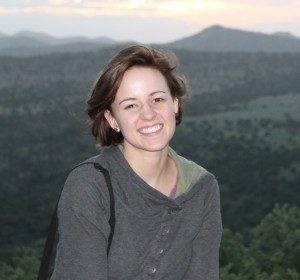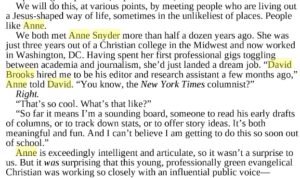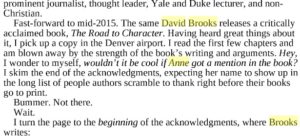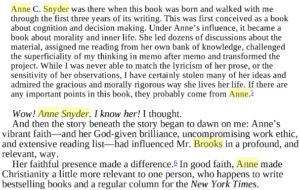He divorced his wife a couple of years ago (after converting her to Judaism) and now he is marrying a Christian.
It’s wondrous the deep spiritual change a pretty young woman can provoke in a married old man.
Anne Snyder came to work for David as a research assistant and went on to serve him in a variety of positions. Now it appears that she is indeed worth a mass. Apparently, David Brooks is jettisoning his wife, his family, his religion and his people for Ms. Snyder and her faith.
Comment: “So the thought process is – marry and procreate with the goyim, send your mischlinge children off to fight for the IDF, while propagandize against your grandkids. Then divorce the first wife you had and marry your research assistant while writing a book hilariously called “The Road to Character.” (lol – I’m guessing he must have found that road and started down the other way.).”
Comment: “The only thing worse than the old Brooks is new Brooks. Never underestimate what an older man will do to keep banging a babe 25 years his junior.”
According to his Wikipedia entry (since scrubbed): “He is engaged to marry Anne Snyder, who was his personal assistant for his book “The Road to Character” and is 23 years his junior, on April 30, 2017.”
From the Columbia Journalism Review Oct. 27, 2015:
Brooks reveals little of his personal life, either in columns, books, or interviews. He threads Christian theology through his recent work, yet won’t say whether he has converted to anything (though he’ll say vaguely that he’s integrating with a new religious community). He is divorced from his wife of 27 years, Sarah, but doesn’t explain what role that break up, or the reasons for it, played in his moral awakening.
ABOVE: David with Anne Snyder, the next Mrs. Brooks.
ABOVE: David with then wife Sarah and their children.
So it sure looks like this writer on moral virtue had an affair with his alluring research assistant and divorced his aging wife (after she had converted from Christianity to Judaism and changed her name from Jane to Sarah).
Is David Brooks' registered? Is he getting married? Anyone can set up a registry so it's hard to know if it's real https://t.co/IXnPiYhVl2
— Gil Student (@GilStudent) February 24, 2017
“He is not in a relationship with Anne Snyder.”
If not for her, then I could not have written
a book about man’s moral sentiments
with such precision or such elegance;
It was all her. I was merely smitten
with the fine turn of her prose; once bitten
by the sharp turn of her thoughts, evident
on my mind like a sting on skin, and delicate
and irresistible as a little kitten,
I—I’m not ashamed to say—became
a nobler man, a better author, bigger
than my critics, certainly humbler in my own life.
Can a muse be another half of the same
person? She is the sole source of the vigor
of my prose. I also thank my wife.
From Christianity Today’s Preaching Today:
Young Christian Influences Big Name Journalist
A young Christian named Anne Snyder spent her first three years after college trying to break into the world of journalism while trying to serve Christ through her career. Then she landed a dream job. David Brooks, a nationally known columnist with The New York Times, hired Anne to be his research assistant. She acted as his sounding board, reading early drafts of his columns and …
From New York Magazine April 15, 2015:
David Brooks Is the White-Hot Center of D.C. Gossip
The political class of D.C. likes to complain that TV shows portraying the city as sexy and moody are unrealistic, so perhaps it’s appropriate that, for going on two years now, the sex life of the most mild-mannered New York Times columnist has been the subject of ceaseless speculation. Ever since the Washington Post reported David Brooks’s divorce from his wife of 27 years, Sarah, back in late 2013 (since disputed), countless stories and tweets have been written that use his personal life as a stick to beat his opinions with. At first, the tack was simply to wonder if a divorced man could still preach the virtues of family and marriage, but lately, as recent Brooks columns have meditated on love and leave-taking, speculation that he’s essentially writing about his divorce has become rampant.
Now Politico turns the gossip up another notch with a romp through the acknowledgments page of Brooks’s new book, The Road to Character, which apparently lavishes much praise on his former research assistant. When contacted to ask if the two had ever had a relationship, Brooks’s publicist offered up a classic present-tense denial. What’s next? Surprising revelations within Brooks’s footnotes?
Who is Annie Snyder?
Anne Snyder is a member of the Humane Pursuits editorial board. She is currently living in Houston, Texas, where she is studying the assimilation patterns of the city’s growing immigrant population while also working for the Laity Lodge Leadership Initiative. She has started a biweekly column for the Orange County Register and freelances elsewhere. Before moving to Houston she worked in the Op-Ed department of The New York Times in Washington, DC, and before that at World Affairs Journal and the Ethics and Public Policy Center. Originally from Boston but given the cross-cultural bug from a childhood spent in Hong Kong and Australia, she holds a B.A. from Wheaton College (IL) and an M.A. from Georgetown University.
Selected as Alumna of the Month for September 2014 by Georgetown’s Journalism program, Anne Snyder said: “There’s nothing like the process of discovering a person layer by layer, and I never cease to marvel at the magic that occurs when a question is asked that causes the subject to really look within and consider his life and context afresh.”
MPS Journalism: Why did you choose to attend Georgetown’s Journalism program? How did you hear about us?
Anne Snyder: I chose the program out of a keenly felt need to develop my own sense of vocational direction apart from a supportive (while very fulfilling) role at The New York Times. After a few years working at a think tank right after college, I wound up as an editor and research assistant for two columnists in the Times’ Washington bureau. While I was introduced to the institution of journalism, the craft itself remained an intimidating mystery. In the midst of learning and contributing value at a higher conceptual level (my academic background was in philosophy), I found myself yearning for more on-the-ground experience and tutelage in the nuts and bolts of a profession whose own industry changes made mentorship among full-time journalists tough to land. Georgetown’s program seemed like a safe space to find these handholds. A friend, Mallie Kim, had gone through the program, and the nature and quality of her final Capstone persuaded me that this was a place to test out new skills and practice, not simply study.
MPS JO: Who is your favorite working journalist?
AS:Anand Giridharadas, a periodic columnist for The New York Times and author (most recently) of “The True American: Murder and Mercy in Texas.” I’ve found him to be a kindred mind in the way he understands immigrant dynamics in the United States today, and I’d love one day to match his gifts in painting an engaging narrative arc while also peeling back the curtain on some fascinating cultural insights and empirical realities.
MPS J0: What one piece of advice would you give current students?
AS:Don’t procrastinate! This is my Achilles’ heel, particularly when it comes to writing, and I invariably pinch myself to do better next time – no matter how many years I’ve been at this! Deadlines are deadlines, and as a wise journalist once said to me, the most important quality of any piece is that of Doneness. Grooming a sense of step-by-step regularity and discipline with your creative process early on in the program will be something you fall back on for life. I’m still learning!
MPS JO: What’s your favorite thing about journalism?
AS:The interview. There’s nothing like the process of discovering a person layer by layer, and I never cease to marvel at the magic that occurs when a question is asked that causes the subject to really look within and consider his life and context afresh.
MPS JO: What’s the most memorable piece you’ve published and why?
AS:Years ago, I labored to express some heartfelt convictions about the growing class divide in this country, and the process of publicizing some convicted questions around my role as both communicator and citizen has kept me accountable to a rather unconventional professional path, one that is trying to merge doing with describing, serving with storytelling. Every time, I wonder why I’ve jumped ship from all things Acela Corridor and the stability of a brand-name institution, I go back to that blog post and gird up fresh courage for the adventure.
From the Christian website Patheos, Aug. 16, 2013:
Anne Snyder is a research and editorial assistant at the New York Times, where she works closely with David Brooks. She was a key speaker at the first annual Fare Forward symposium (she’s also agreed to join our board of directors), and during her talk she mentioned she was interested in pursuing “Dorothy Day-style” journalism when she leaves the Times at some point in the future. I met with her to follow-up on that idea, and explore her formative influences more deeply.
One of the things Anne and I talked about was Coming Apart, Charles Murray’s masterful exploration of the growing economic and cultural divisions between elite and working class whites. The central thesis of Coming Apart—reviewed here by Andrew Schuman in FF—is that the upper class is profiting from practicing virtues of industriousness and self-restraint, but the lower class has lost those virtues and is suffering as a result. Murray’s solution is for elites to “preach what they practice” and try to persuade the lower class—from whom they have become increasingly isolated—to adopt these virtues as well…
After she leaves the Times she wants to work on cross-class integration by doing embedded journalism in immigrant communities.
From Oak Hills Christian College:
I am currently reading a book called “Good Faith: Being a Christian when Society Thinks You are Irrelevant and Extreme” by David Kinnaman and Gabe Lyons. They tell a story of a woman they know named Anne Snyder, who attended a Christian school and got a job as an assistant to well-known New York Times journalist, David Brooks. After Anne had been working for David a few years, he published a book called “The Road to Character” which includes a lengthy excerpt about Anne’s influence on him in the acknowledgments:
Anne C. Snyder was there when this book was born and walked with me through the first three years of its writing. This was first conceived as a book about cognition and decision making. Under Anne’s influence, it became a book about morality and inner life. She led dozens of discussions about the material, assigned me reading from her her own bank of knowledge, challenged the superficiality of my thinking in memo after memo and transformed the project. While I was never able to match the lyricism of her prose, or the sensitivity of her observations, I have certainly stolen many of her ideas and admired the gracious and morally rigorous way she lives her life. If there are any important points in this book, they probably came from Anne.
What a great influence Anne was to David! Did she have a degree or career in ministry? No, but she had a Christian background and let her moral character and faith shine in a way that significantly influenced her non-Christian boss. You may not be getting a ministry degree right now, but that doesn’t mean you can’t be a light in this world in whatever career you choose!
A college degree can definitely help you get a great career, and at Oak Hills you will receive the added bonus of having a Christian education where you will learn and be equipped in biblical teachings. You will be ready to take on the world in whatever path God sets before you AND you will be able to do it with his teachings in mind. Shine your light and make a difference! Be a positive influence to those around you by showing them what Christian Faith truly looks like in a person and in the workplace.
Is it OK to have an affair with a married man if in the end you bring him to Christ?
Here’s an excerpt from a 2016 Presbyterian sermon:
Luke 17:1-4
The Rev. Dr. Robert S. Langworthy, preaching
October 9, 2016We can even influence, for good or ill, those “above” us. David Brooks is a nationally respected and honored columnist for the New York Times who is, by self-definition, not a Christian. A couple of years ago, he hired a recent college graduate named Anne Snyder to be his research assistant, because of how bright and articulate she is. He would soon also find out how decidedly Christian she is, radiating a vibrant faith.
While Brooks still identifies as an agnostic, he admits that knowing Snyder has changed his view of Christianity and made the faith more relevant to what he cares about. On his acknowledgement page in his 2015 book Road to Character, he writes that she challenged his previous superficial ideas, redirected his train of thought, and changed his book for the better. Brooks says, “I have certainly stolen many of her ideas and admired the gracious and morally rigorous ways she lives her life.”
Few things are more enticing to a man than a beautiful young woman’s moral rigor.
Here is an excerpt from the book, Good Faith: Being a Christian When Society Thinks You’re Irrelevant and Extreme:
Are these Christians naive or savvy about what is really going on when this young woman seduces Brooks away from his family and into Christianity?
New York Times columnist David Brooks is getting the full Washington book party treatment Thursday night, with a fancy party to be hosted at the Kalorama mansion of his old friends Atlantic owner David Bradley and his wife. The new Brooks book, The Road to Character, extols the virtue of a noble life via the study of a handful of leaders and thinkers. However, it’s the effusive 110-word display of admiration and gratitude Brooks gives to Anne C. Snyder, his 30-year-old former New York Times research assistant, which is catching people’s attention. Brooks, easily one of the most admired conservative columnists in America, with a distinguished list of bestselling books, and a vocal critic of morality and cultural habits, devotes the opening paragraph of the “Acknowledgements” section to Snyder, gushing about the “lyricism of her prose” and the “sensitivity of her observations.” Brooks says it was Snyder’s influence that led him to write a book about “morality and inner life” and that she was a close partner in the “three years of its writing.”
The big-thinking journalist even gives credit to Snyder for the ideas in The Road to Character, writing: “If there are any important points in this book, they probably come from Anne.” Contacted Wednesday, Brooks backpedaled a bit. “That phrase,” he said, “was probably a poor choice of words on my part. I was trying to be appreciative and lighthearted.” Yet Anne Snyder, who now lives in Houston, stands in the acknowledgements as the only person not given a specific title: Fact-checker, editor, friend, parent, or even “ex-wife.” Brooks recently divorced his wife of 28 years, Sarah Brooks, and she gets a brief nod in the very last paragraph of the Acknowledgements for the “amazing job” she has done raising the couple’s three kids. Brooks didn’t respond to a question about his relationship with Snyder, and when asked whether the columnist and Snyder had ever been in a relationship, Brooks’ publicist answered only in the present tense: “He is not in a relationship with Anne Snyder.”
Is The New York Times’ David Brooks Converting to Christianity?
America’s foremost public intellectual ponders changing faith, sources say
“I’m a believer,” David Brooks said on National Public Radio Monday, and The New York Times columnist and author was not referring to his beloved New York Mets this season. Brooks was responding to a question about how his new book, “The Road to Character,” has changed his religious life.
“I read a lot of theology — whether it’s C.S. Lewis or Joseph Soloveitchik, a rabbi — and it’s produced a lot of religious upsurge in my heart,” he said, elaborating only slightly.
Brooks’ muted but heartfelt reply reflects a change in the celebrated writer’s tone and the subjects he chooses to write and speak about. In the course of his long writing career the 53-year-old Brooks has rarely broached the topic of his spiritual life. But in the last 12 months, he has been quite forthcoming.
“There’s something just awesome about seeing somebody stand up and imitate and live the non-negotiable truth of Jesus Christ,” Brooks told The Gathering, an annual meeting of evangelical Christian philanthropists, last October. He hardly hid his religiosity under a bushel there, telling the crowd, “I want you to know that I am for you and I love you,” he said, noting that he attends a Bible study class.
In the introduction to his new book, Brooks disclosed a personal reason for writing it: “I wrote it to save my soul.” Inspired by the authentic Christian joy of what he calls “incandescent souls,” Brooks decided to find out what makes them tick. Writing “The Road to Character” was his method.“A few years ago I sent out to discover how those deeply good people got that way. I didn’t know if I could follow their road to character (I’m a pundit, more or less paid to appear smarter and better than I really am). But I at least wanted to know what the road looked like,” Brooks wrote in a recent column adapted from the book.
“The Road to Character” profiles exemplars of humility, devotion to a calling, and hard work, such as Gen. Dwight D. Eisenhower and former Labor Secretary Frances Perkins.
But in his speech to The Gathering last fall and at the Aspen Ideas Festival last June, Brooks reserved his highest esteem for two religious figures, who he called his “heroes” — Dorothy Day and St. Augustine. Like C.S. Lewis, Day and Augustine are converts to Christianity. While Brooks has said he is an observant conservative Jew, one can’t help seeing these “heroes” as clues to Brooks’ own nascent conversion.
Three people interviewed who know Brooks personally say he has taken steps to do just that. “I don’t know that he’s converting, but I know he’s gone to church,” one conservative associate said of Brooks. “No one knows where it’s going to go, but he’s not in the same spot as he was two years ago.”
A second person familiar with Brooks’ thinking would only confirm that Brooks is interested in becoming a Christian. According to a third source, Brooks has received instruction in the Catholic faith from Arthur Brooks and Ross Douthat, both converts.
Arthur Brooks, the president of the American Enterprise Institute, a conservative think tank in Washington, D.C., said he does not know if his friend is converting.
“I don’t know where he is on his faith journey,” Brooks said at the Conservative Political Action Conference, an annual gathering of movement activists and leaders, on Feb. 28. He said he has not talked with Brooks about his possible conversion to Christianity.
Douthat, also a New York Times columnist and author of the book “Bad Religion: How We Became a Nation of Heretics,” did not reply to an email for comment. Nor did Brooks.
Yet Brooks has acknowledged his religious outlook has changed. “I don’t talk about my religious life in public in part because it’s so shifting and green and vulnerable,” he told NPR. “I don’t really talk about it because I don’t want to trample the fresh grass.”
From Moment Magazine Jan-Feb, 2016 issue:
Brooks has long attended Adas Israel, a Conservative congregation in Washington with many well-connected and politically influential members. The recently divorced Brooks is part of an informal Jewish study group led by Orthodox scholar Erica Brown along with fellow prominent Washingtonians, among them former Meet the Press host David Gregory and Atlantic writer Jeffrey Goldberg. Brooks says he now also meets regularly with Christian theologians.
As Brooks, 54, struggles publicly with questions about who we are and what we believe, he is more cryptic about what he describes as his transition into a new religious community…But you’ve hinted that you’ve undergone some kind of shift in spiritual outlook. What is that?
I don’t talk about my own faith. It’s all so new and green that I’m afraid if I talk about it in public, it will become like my political opinions, just a bumper sticker, not a living, breathing thing. I will say that right now I’m just a magpie. I read everything, and some of it is Jewish and some of it is Christian, and some of it is just humanistic. Ethnically, culturally, historically, I’m Jewish. Parts of Jewish theology I like—the emphasis on agency. There are parts of Christianity—a more richly developed sense of grace— that I find very beautiful. And so now, just in my attempt at understanding, I’m reading everything and seeing everybody. I go to the Jewish Theological Seminary and I go to Gordon College, a Christian school in Massachusetts. I’m just in learning mode.
You said you should be more in community. Have you done that?
That part I really don’t like to talk about. But the short answer is I haven’t found a community.
Was there a threshold event that led to your new focus on morality and spirituality?
No, I didn’t have a midlife crisis. If anything, it was the opposite, it was moments of coming home and seeing my kids so happy, and meeting people who were just so joyful. And I would love to experience and radiate that inner joy, which they did. So it’s more aspirational than that I hit rock bottom and I’m rebounding.
Have you experienced a loss of personal religious purpose or are you seeing this primarily in society at large?
Both. Some people pray at shul or at church or mosque, or in the woods. I pray by writing. And that means sometimes I’m like one of those creatures who’s preaching to himself from the pulpit. I’ve been observant mostly through my family. We kept kosher at home, my kids went to Jewish day schools, we had Shabbat meals. So at that moment, I was more traditionally observant than I am now. At the same time, I’m now reading a lot more Soloveitchik and a lot more Heschel. So in some sense my observance is down but my thinking is up.
Since you’re still in the pundit game, I have to ask, who do you think will be the next president and why will Americans choose him or her?
I think Hillary Clinton will be the next president. My normal rule is, people vote for order.
* “For the life of me, I can’t figure out why so many Republicans prefer a dying white America to a place like, say, Houston.”
Nothing more hilarious than white Americans cheering on the death of white America. The level of dissonance is unreal.
* He quoted Sailer for a while, actually, then they realized what he was doing and came after him.
He seems pretty solidly anti-Trump now.
* It’s remarkable how the advent of Trump has liberated speech. We’re finally having that honest conversation about race, and Republicans are leading the way!
Bill Kristol, Feb. 7, 2017:
“Look, to be totally honest, if things are so bad as you say with the white working class, don’t you want to get new Americans in?”
David Brooks, Feb. 24, 2017:
“For the life of me, I can’t figure out why so many Republicans prefer a dying white America to a place like, say, Houston.”
Any other examples of Republicans having such sudden outbreaks of honesty?
* David Brooks used to be very acerbic, before he saw his role as defending the new establishment. Here is a very telling Brooks piece, dancing on the grave of the old establishment.
* Brooks needs to read Borjas, George. He shows quite plainly that illegal immigration of low-skilled workers reduces incomes of low-skilled Americans and has the net effect of transferring wealth from low-skilled Americans to wealthy Americans.
* Of those Jews that vote Republican, aren’t there at least as many who do so for other reasons, such as Israel[1]; law and order/ safety from street thugs; and, especially since 9/11, national security? Don’t forget, as well, that many Jews, especially in the public sector, have been victims of affirmative action, losing their jobs to less-qualified Blacks or Latinos/Hispanics. (E.g., public school systems, perhaps most notably New York City’s.) There are also at least some Jews, as has been noted in other comments in this thread, who oppose the onslaught of mass third-world immigration. (Again, the number of such Jews has undoubtedly increased after 9/11 and subsequent terrorist attacks in the West.) Finally, there are Jews for whom social/cultural conservatism factors, to varying degrees, into their voting GOP. While most in this latter category are likely Orthodox, not all are. Unz Review’s own Paul Gottfried, for example, is certainly someone who seems to appreciate the moral and cultural scourge posed by “LGBTQ” degeneracy (as well, I believe, of Internet pornography).[2]
For reasons that should be obvious, I find it germane to note that I am an emphatically non-Zionist Orthodox Jew[1] who abhors Cultural Marxism and is vehemently opposed to both the “invade” as well as the “invite” wings of the globalist bird of prey. I also feel a debt of gratitude for the unprecedented kindness and religious tolerance of an overwhelmingly White and Christian America. (While wishing no one any harm merely because of such accidents of birth as race or national, ethnic or religious origin.) My view of individuals such as Jennifer Rubin, David Brooks and Bill Kristol should not be difficult to guess.
NOTES:
[1] Or, more properly, the Zionist State that calls itself “Israel”. Zionism, from its inception and in all of its forms, was declared a grave violation of Judaism and opposed by a near-unanimous consensus of the foremost rabbinical authorities and Judaic sages. Had their words been heeded, the Zionist State would never have been created. Now that it has, its existence presents a terribly difficult, complicated and ultra-delicate situation for Torah-true Jews. While there are legitimate differences in opinion among bona fide rabbinical authorities on many points concerning the proper approach to take in the matter, far too many of even some of the most otherwise loyal and devout Jews– including even some great rabbis– have been led astray by the golden calf of Zionism, causing them to err and stumble in this area.
[2] Some examples, in addition to Gottfried’s piece on Cultural Marxism that I linked above:
While addressing either his own H.L. Mencken Society or some other gathering of those on what one of the speakers termed the “heretical Right”, I heard Gottfried take exception to the conventional (and trite) Republican criticism of Obama as a “Socialist”. Being a “socialist”, argued Gottfried, is the least of the problems with Obama; “He’s a radical!”. I do not recall Gottfried’s words well enough to be more specific but I do recall that if Gottfried did not explicitly specify that he meant, at least in large part, Obama’s unprecedented level of support for the “LGBTQ” agenda (which Gottfried may very well have), then I certainly understood Gottfried to be implying that.
Another example: I heard Gottfried (in an interview with Kevin Michael Grace, if I recall correctly) in the context of explaining his rejection of White Nationalism, declare that he would not, for example, want to side with homosexuals* against Blacks.
As for pornography and the like, while there is no instance of Gottfried addressing it explicitly that I can recall or point-to, I can say the following. I do not find it it all inconceivable that someone such as Gottfried may, for all I know, have little-to-no problem with the likes of Playboy. When it comes to the kind of corrosive filth, however, that the Internet has given every child by the age of 12 de facto nearly unrestricted access to– material that makes the likes of Playboy, by comparison, look downright wholesome— I have little doubt of Gottfried’s concern and even outright disapproval.
*I feel I should note here that when Gottfried said “homosexuals”, I doubt he was referring merely to anyone’s personal proclivities or even to their personal behavior, per se— at least as long as it would remain discreet. Rather, I took Gottfried to be referring-to brazen, buggering, activist Sodomites who tyrannically insist that everyone not merely tolerate, not even merely respect, but actually embrace, celebrate, champion and subsidize their wanton, inordinately disease-promoting degeneracy– public health; the welfare of confused and vulnerable children; what was the very foundation of society for the entire history of humanity; and religious liberty all be damned. (Not to mention the spilling-over of said degeneracy into heterosexual youth culture.)



